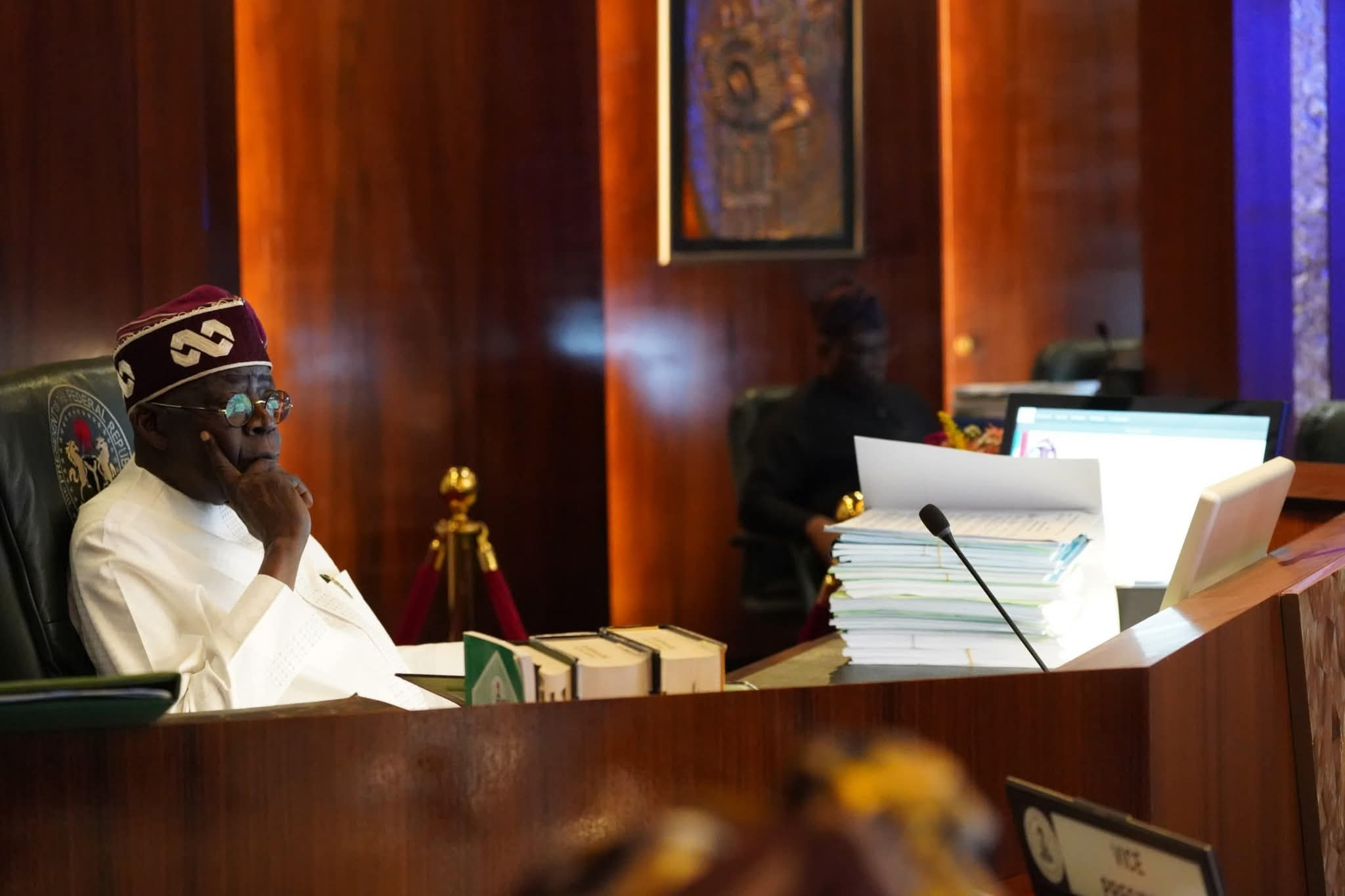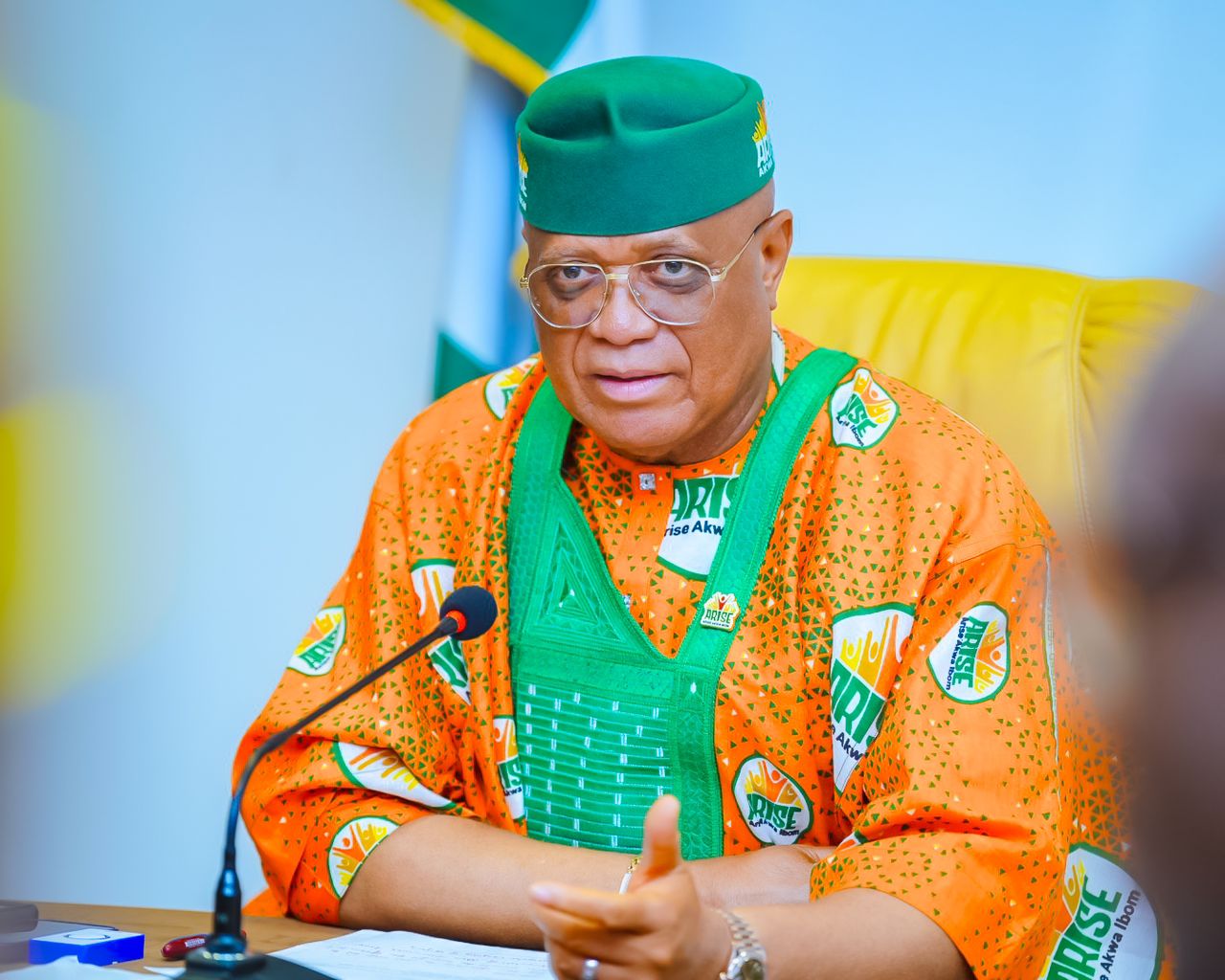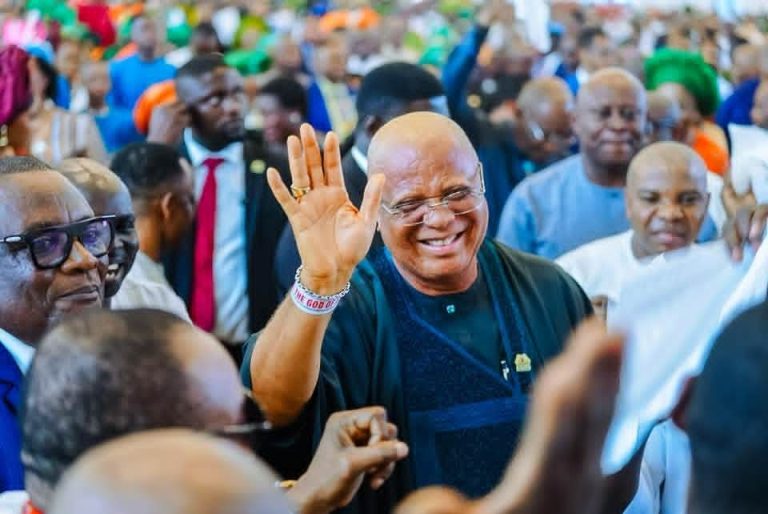
President Bola Ahmed Tinubu has reaffirmed his administration’s commitment to sustaining Nigeria’s economic reforms and strengthening diplomatic engagement with global partners, assuring that the country remains on a steady path toward stability and prosperity.
Speaking at Thursday’s Federal Executive Council (FEC) meeting at the Presidential Villa, Abuja, the President said Nigeria’s recent economic performance and international confidence in its reform agenda reflect a growing sense of optimism about the nation’s future.
The meeting followed the swearing-in of two new ministers — Dr. Bernard Mohammed Doro, who now heads the Ministry of Humanitarian Affairs and Poverty Reduction, and Dr. Kingsley Tochukwu Udeh (SAN), assigned to the Ministry of Innovation, Science, and Technology.
In a statement by the Special Adviser to the President on Information and Strategy, Bayo Onanuga, President Tinubu highlighted the government’s recent $2.3 billion Eurobond issuance, which was oversubscribed by 400 percent, as proof of renewed investor confidence in Nigeria’s economy and leadership direction.
“The most important thing is that despite political headwinds and fears among our people, we continue to engage the world diplomatically,” the President said.
“The success of the Eurobond is most assuring. We will defeat terrorism in this country and build a prosperous, inclusive, and resilient Nigeria guided by the Renewed Hope Agenda.”
On security, Tinubu urged Nigerians not to lose hope, emphasizing that his administration remains determined to eradicate terrorism and all forms of criminality across the country.
“Do we have problems? Yes. Are we challenged by terrorism? Yes. But we will defeat terrorism,” he declared.
“Nigeria is one happy family, and we shall spare no effort until we eliminate all criminals from our society.”
The President also tasked ministers and government officials to maintain consistency in communication and avoid “discordant messaging” in presenting government policies to the public.
During the meeting, Minister of Finance and Coordinating Minister of the Economy, Mr. Wale Edun, presented a report on Nigeria’s improving macroeconomic performance, describing it as one of the strongest in a decade.
Edun noted that the economy grew by 4.23 percent in the second quarter of 2025, with 13 sectors recording growth above 7 percent. He added that inflation had eased to 18.02 percent in September, while foreign reserves rose to $43 billion and the national trade surplus hit ₦7.4 trillion.
“The industrial sector nearly doubled its growth from 3.72% to 7.45%, reflecting rising productivity and investor confidence,” Edun said.
“These are clear signs of macroeconomic stability and a shift from subsistence to productivity and affluence.”
He further noted that Nigeria’s removal from the Financial Action Task Force (FATF) Grey List and improved global credit ratings underscored the success of ongoing reforms under the Renewed Hope Agenda.
Edun projected that Nigeria could achieve a $1 trillion economy by 2030, provided it sustains an average growth rate of 7 percent and continues prioritizing poverty reduction as a “moral imperative.”
He also called for greater collaboration between federal ministries and state governments to mobilize domestic resources and drive job-creating investments, especially in infrastructure, mining, education, agriculture, and digital innovation.
“Every Naira must be optimised to sustain momentum amid global liquidity constraints,” he advised.
“The next phase of reforms will remove barriers holding back investors and review tariffs and import restrictions to stimulate productivity and investment.”
President Tinubu concluded by reaffirming that his administration will continue to pursue policies that enhance investor confidence, promote unity, and strengthen Nigeria’s position on the global stage.




